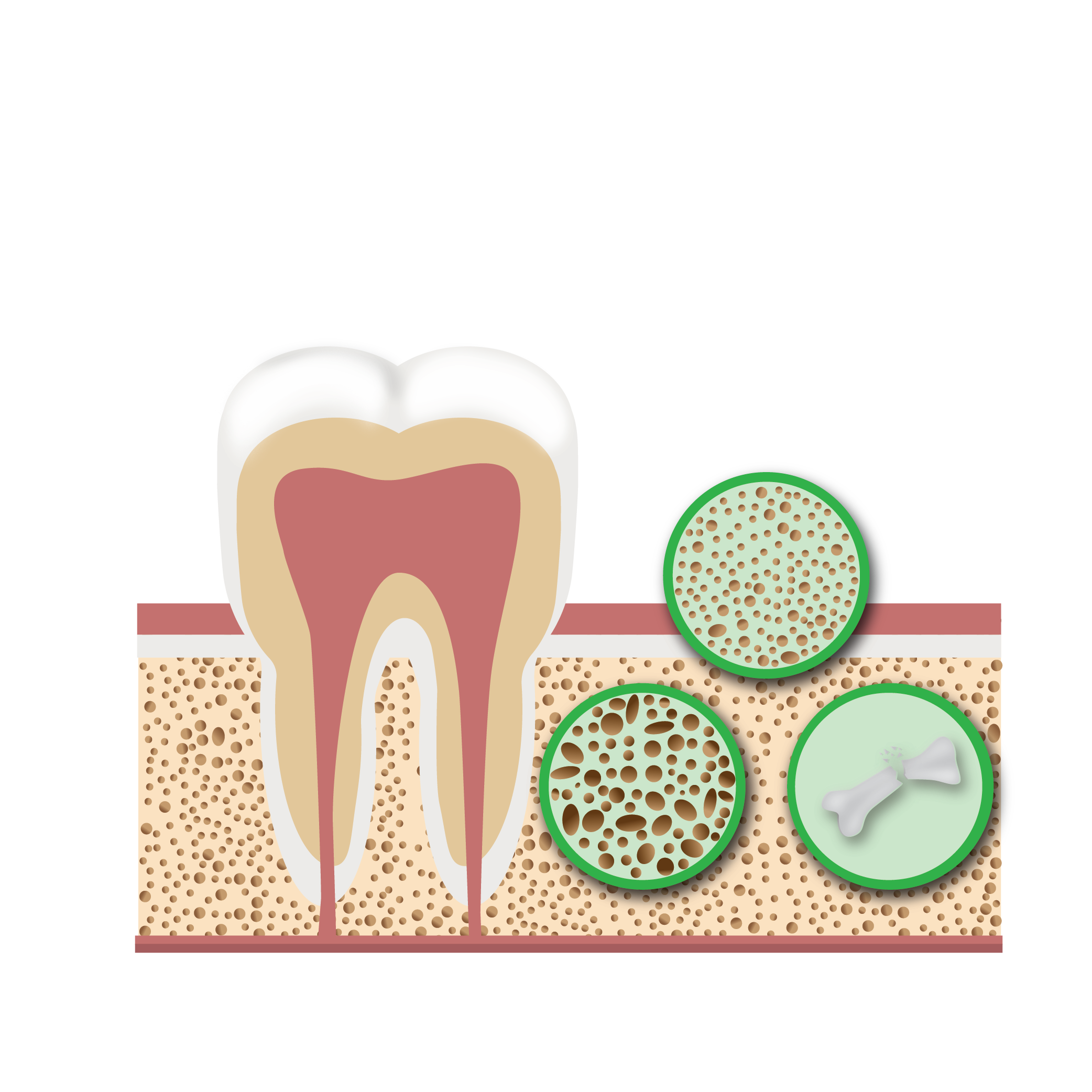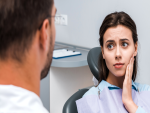
If you are someone who uses bone strengthening medication, have you noticed the warning label states it may have an impact on the health of your jaw – specifically after having teeth pulled? After the procedure, some people on these medications are more likely to experience infection or delayed healing. Let’s take a look at the connection between these medications and oral health.
For people who take bone-strengthening medications, related osteonecrosis of the jaw (MRONJ) can develop after dental treatments that involve the bone. This is known as antiresorptive therapy and is common today. MRONJ is a rare but serious condition that affects the jawbone. There are three classes of drugs with antiresorptive properties approved by the Food and Drug Administration (FDA) for use in osteoporosis treatment: bisphosphonates, RANKL (receptor activator for nuclear factor-kappa B ligand) inhibitors and sclerostin inhibitors.

Although MRONJ is associated with invasive dental procedures such as tooth extraction, it can also occur without dental procedures. MRONJ can cause loss of bone, pain, infection, loose teeth, and exposed bone. Symptoms include pain, swelling, or infection of the gums or jaw, loose teeth, numbness or a feeling of heaviness in the jaw, gums that do not heal, or bone that does not have gum tissue protecting it.
While MRONJ is a potentially painful and significant condition, it is important to keep in mind that osteoporosis related fractures are more dangerous and deadly, and the risk of experiencing MRONJ is relatively low and much less serious, therefore outweighing the risk. It is important to take your medication as directed by your physician. You can avoid complications by seeing your dental team before starting the medications and having regular preventive care.
Patients at increased risk of MRONJ include those who:
- Take high dose agents for cancer related indications, as compared to people taking these drugs at lower doses for prevention/treatment of osteoporosis.
- Receive these drugs for more than two years.
- Have periodontitis and/or dentures.
- Smoke.
- Have diabetes.
Keeping up with your daily dental care at home, including brushing for two minutes twice per day, flossing or using interdental cleaners, and eating a diet that is low in sugar are good ways to avoid this condition. Regular visits to your dental office may limit the need for treatments that increase the risk of developing MRONJ.
Not only do these regular preventive measures reduce the occurrence of MRONJ, but they help in the maintenance of optimal oral health which positively affects your overall health!
References:
- American Association of Oral and Maxillofacial Surgeons’ Position Paper on Medication-Related Osteonecrosis of the Jaws—2022 Update00148-3/fulltext "American Association of Oral and Maxillofacial Surgeons’ Position Paper on Medication-Related Osteonecrosis of the Jaws—2022 Update")
- A Guide to Drug Safety Terms at FDA. U.S. Food and Drug Administration
- Advanced and Metastatic Cancer
This information in this post is for general educational purposes only and does not warrant or represent any information as related to health as specifically appropriate for you. It is not intended to be medical advice or replace the relationship that you have with your health care providers. You should always seek medical advice on any diagnosis or treatment from a qualified health care provider. The information is provided “as is” without any representations or warranties, express or implied.







